By Meryl 高筱淇
An Unforgettable Journey to the Heart of South America
When most students think about internships, they imagine working in familiar surroundings, perhaps within their own country or a neighboring one. For Inmu Chuang, a third-year master’s student in National Chengchi University’s Global Communication and Innovative Technology (GCIT) program, the opportunity to be a volunteering intern in Paraguay—a country over 18,000 kilometers from Taiwan—was a dream come true.
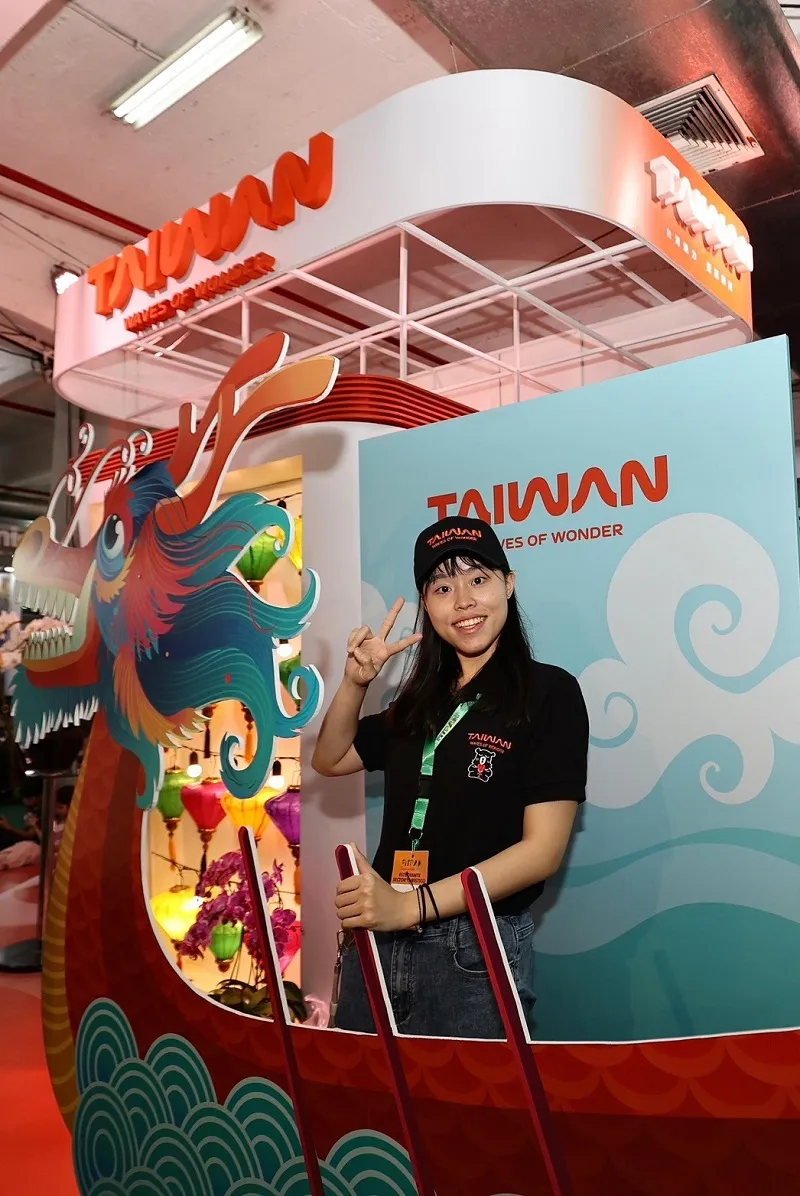
▲For Inmu Chuang, the opportunity to intern in Paraguay was a dream come true. Photo courtesy of Inmu Chuang Nov 21, 2024
Through the Health Information Management Efficiency Enhancement Project in Paraguay, nicknamed Health Information System (HIS), funded by Taiwan International Cooperation and Development Fund (ICDF), Inmu embarked on a journey lasting for around six months to the only South American country with formal diplomatic ties to Taiwan.
The project, officially titled the Health Information Management Efficiency Enhancement Project in Paraguay, focuses on enhancing the digital capabilities of Paraguay’s healthcare sector. For Inmu, this was more than an internship, but a chance to merge her academic knowledge, cultural curiosity, and personal aspirations into a meaningful global experience.
A Look into the HIS Project
Initiated in 2014, HIS Project arose from a diplomatic partnership between Paraguay and Taiwan. Its goal is straightforward but ambitious: to modernize Paraguay’s public healthcare system by introducing a digitized health information management system.
Until recently, most medical records in Paraguay were still handwritten—a system reminiscent of Taiwan’s past. From patient registration by a nurse to the recording of the patient’s height, weight, and blood pressure, to diagnosis, prescriptions, and medical record filing, every step relied heavily on manual work.
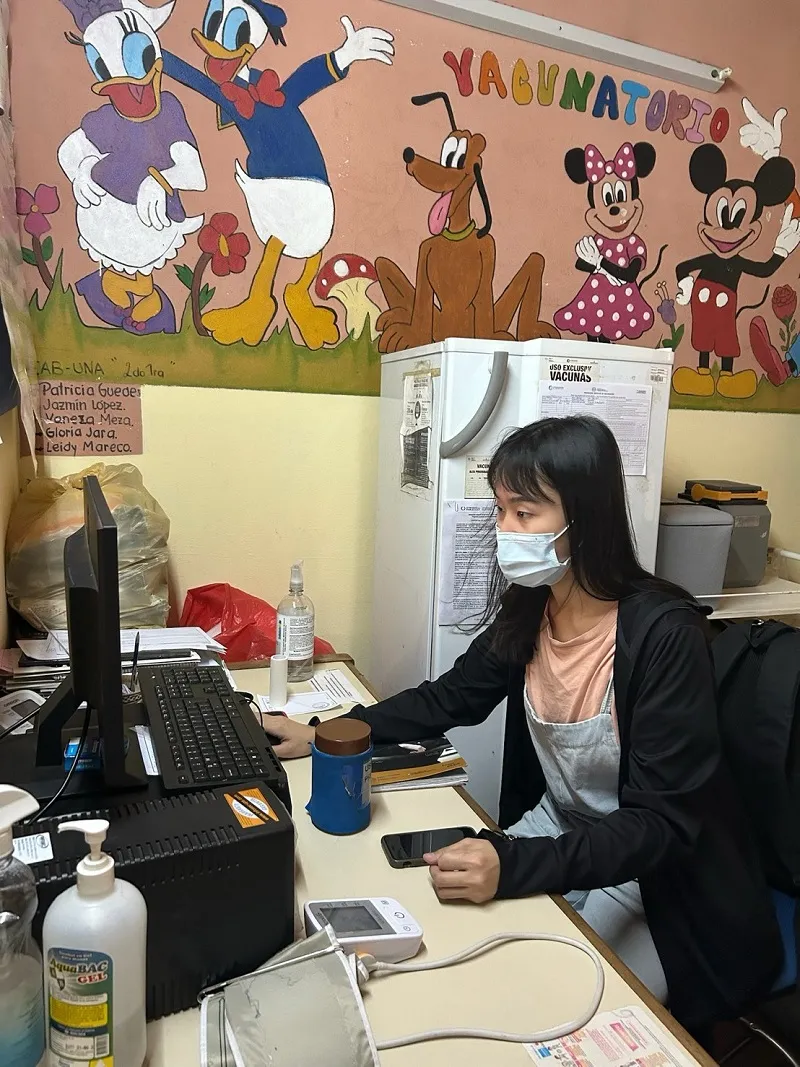
▲Inmu introducing the digitized health information management system. Photo courtesy of Inmu Chuang Nov 21, 2024
“Imagine receptionists handwriting patient details, storing files in cabinets, and then rummaging through thousands of records to find one when the patient returns,” Inmu explained. “It’s time-consuming because of the lack of integration of medical information.”
The project seeks to alleviate these inefficiencies by creating a centralized, digital system. Not only does this system improve administrative workflows, but it also provides valuable tools for monitoring public health and responding to medical emergencies.
Inmu’s Role: Beyond Technical Assistance
As a volunteer intern, Inmu’s responsibilities were both broad and impactful. Her primary role was to assist hospitals across Paraguay in adopting and utilizing the new health information management system. However, this task was far from simple.
“Many doctors here were still unfamiliar with the more advanced medical technology that could possibly assist them when having appointments, and a part of our jobs is thus helping them to transition handwritten medical records to a digital system,” said Inmu. “It requires not just technical knowledge but also patience and understanding.”
To bridge these gaps, Inmu tried her best to provide help in whichever way possible. While her colleagues from Paraguay were having teaching and training sessions in the hospital, Inmu was there, ready to answer any possible question that may come up.
Inmu’s work area was also not limited to only one specific area, but extended beyond hospitals in the capital to rural regions, where resources were even scarcer, and challenges more pronounced.
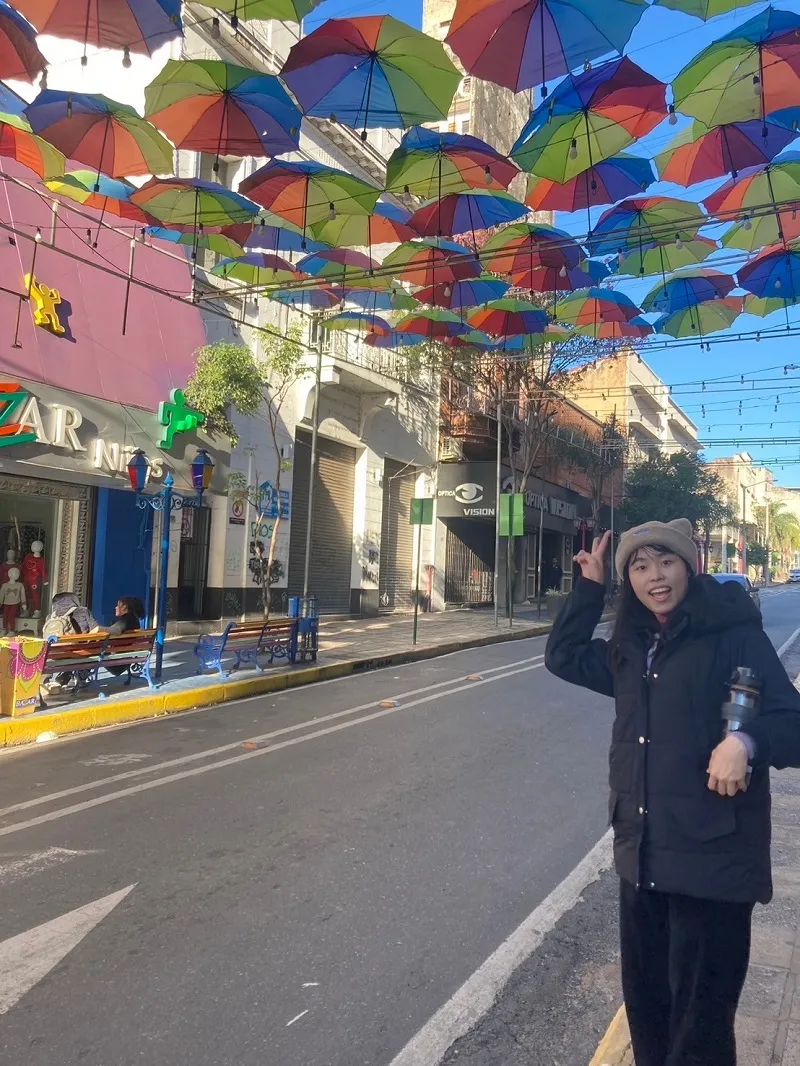
▲Inmu in the capital of Paraguay. Photo courtesy of Inmu Chuang Nov 21, 2024
Inmu’s other responsibilities included translating Paraguayan news articles about the HIS Project into Chinese, compiling these reports for documentation, and assisting the Taiwan Embassy in hosting international travel fairs in Paraguay. As one of the few team members fluent in Spanish, her language skills proved indispensable in communicating with local stakeholders.
Additionally, Inmu tackled logistical hurdles, such as setting up internet connections in hospitals that lacked basic infrastructure. “In Taiwan, internet access is taken for granted. In Paraguay, we often had to bring ethernet cables and routers to set up connections from scratch,” she shared.
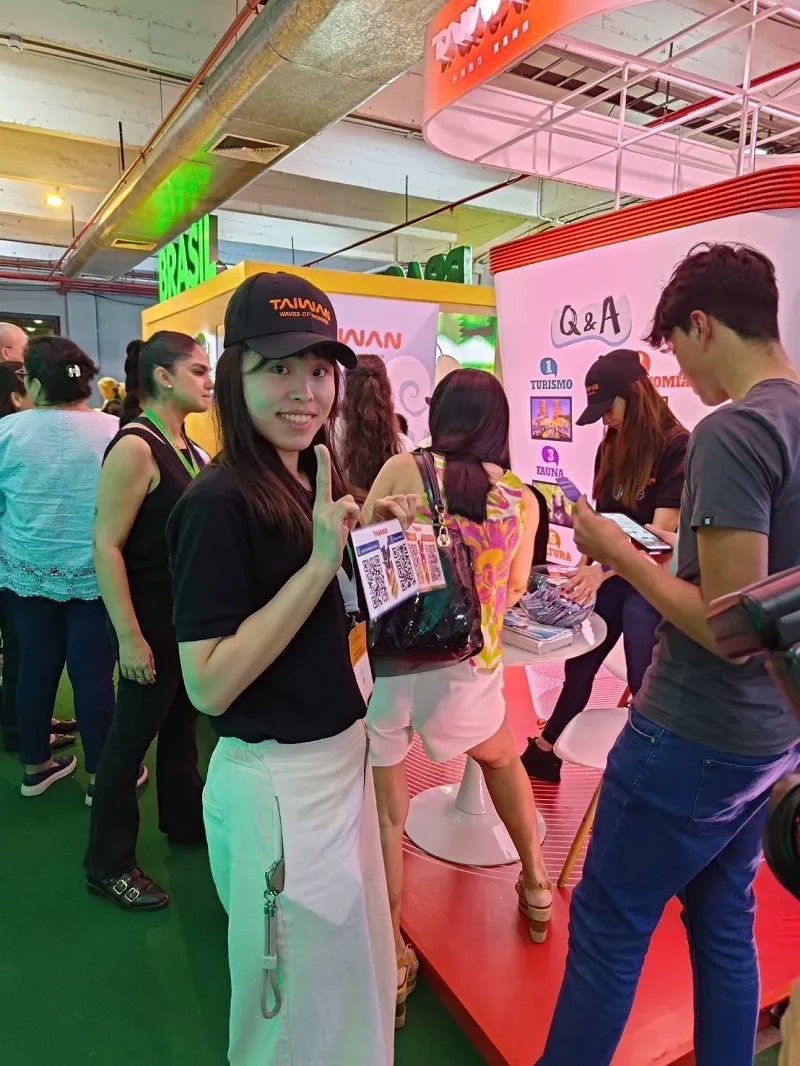
▲Inmu’s other responsibilities included assisting the Taiwan Embassy in hosting international travel fairs in Paraguay. Photo courtesy of Inmu Chuang Nov 21, 2024
Lessons from Paraguay’s Unique Healthcare Environment
One of the most striking aspects of Inmu’s experience was her exposure to Paraguay’s healthcare system. Many public hospitals operate in environments far removed from those in Taiwan, resembling traditional courtyard houses with minimal facilities. In one hospital, the reception area, pharmacy, and pre-diagnosis section all shared the same open-air lobby since the lobby is more airy and chiller.
“There was a case where the system’s implementation was delayed because doctors requested air conditioning first, and without proper ventilation, the heat in consultation rooms was unbearable, especially during Paraguay’s sweltering summers,” she recounted.
Such moments underscored the disparity in resources between Taiwan and Paraguay, inspiring Inmu to reflect on the importance of adaptability and empathy.
“It’s easy to get frustrated when things don’t go as planned, but understanding the local context is the key, and these challenges are a reminder of why projects like the HIS Project are so essential,” Inmu shared.
A New Cultural Lens
Living in Paraguay also provided Inmu with invaluable cultural insights. The country’s day-to-day life offered stark contrasts to Taiwan. For instance, public buses in Paraguay don’t announce stops, and passengers must pull a string to signal, ring the getting-off bell, or in some cases even find a hidden bottom to press when they want to get off—a small but telling detail that required her to adapt quickly.

▲Living in Paraguay provided Inmu with countless invaluable cultural insights. Photo courtesy of Inmu Chuang Nov 21, 2024
Another cultural surprise to Inmu was the Paraguayan local food, including surubí, chipa, and empanada. Among all of the cuisine, the breakfast staple, chipa, catched Inmu’s curiosity.
According to Inmu, this dry bread, often paired with a tea-like beverage, was often sold by hawkers on buses and had later become a regular part of her mornings.
“The way they sell it is really interesting because the hawkers often just hopped on buses randomly, and hopped off upon finishing their selling,” Inmu laughed and said. “It’s also highly different from what I’m used to, but to my surprise, some varieties are really tasty,”
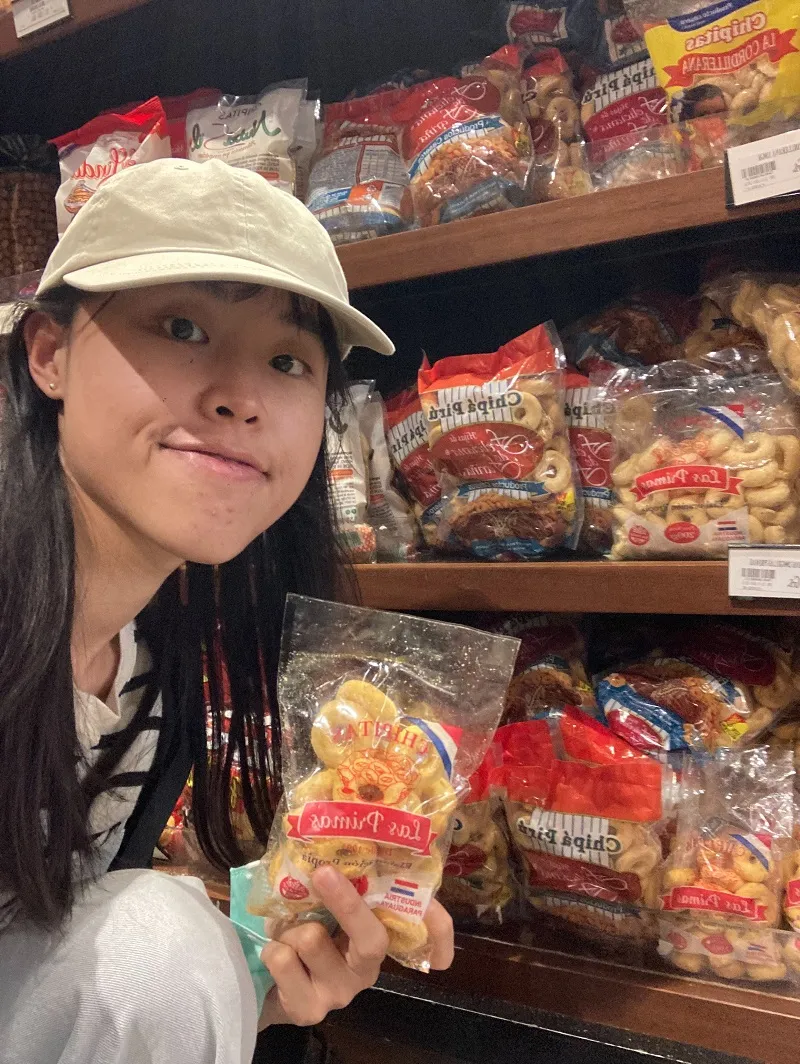
▲Another cultural surprise was the Paraguayan breakfast staple, chipa. This dry bread, often paired with a tea-like beverage, became a regular part of her mornings. Photo courtesy of Inmu Chuang Nov 21, 2024
According to Inmu, Paraguay’s societal contrasts were perhaps the most eye-opening with extreme wealth and poverty existing side by side and affluent neighborhoods situated just minutes away from makeshift tents in slums.
“The gap between rich and poor here is unlike anything I’ve seen before,” she noted.
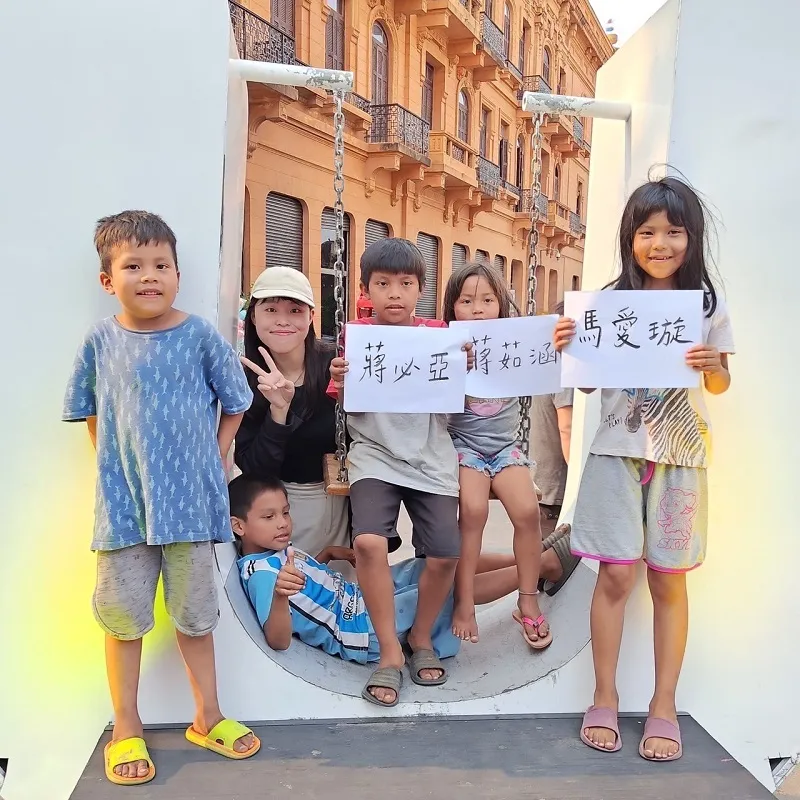
▲Aboriginal children participated in the Chinese calligraphy name writing event held by the Taiwan Embassy in Paraguay. Photo courtesy of Inmu Chuang Nov 21, 2024
Despite these differences, Inmu found the Paraguayan people to be warm and welcoming. Their genuine curiosity about Taiwan often led to meaningful conversations and friendships.
The NCCU Edge: Preparing for Global Challenges
Inmu credits her time at NCCU, particularly in the GCIT program, with equipping her for the challenges of living and working in a foreign environment. The program’s emphasis on intercultural communication and collaboration prepared her to navigate cultural differences with confidence.
“At GCIT, I learned how to collaborate with people from diverse backgrounds, discuss common goals, and overcome language barriers, and these skills made it easier for me to adapt to Paraguay,” she explained.
▲“At GCIT, I learned how to collaborate with people from diverse backgrounds, discuss common goals, and overcome language barriers. These skills made it easier for me to adapt to Paraguay,” Inmu explained. Photo courtesy of Inmu Chuang Nov 21, 2024
As Inmu shared, GCIT’s focus on digital transformation also aligned seamlessly with the HIS Project.
“Combining my academic knowledge of digital innovation with my language skills allowed me to contribute meaningfully to the project,” she said.
Memorable Moments and Personal Growth
While the internship was demanding, it was also deeply rewarding. One of the highlights for Inmu was seeing the tangible impact of her work.
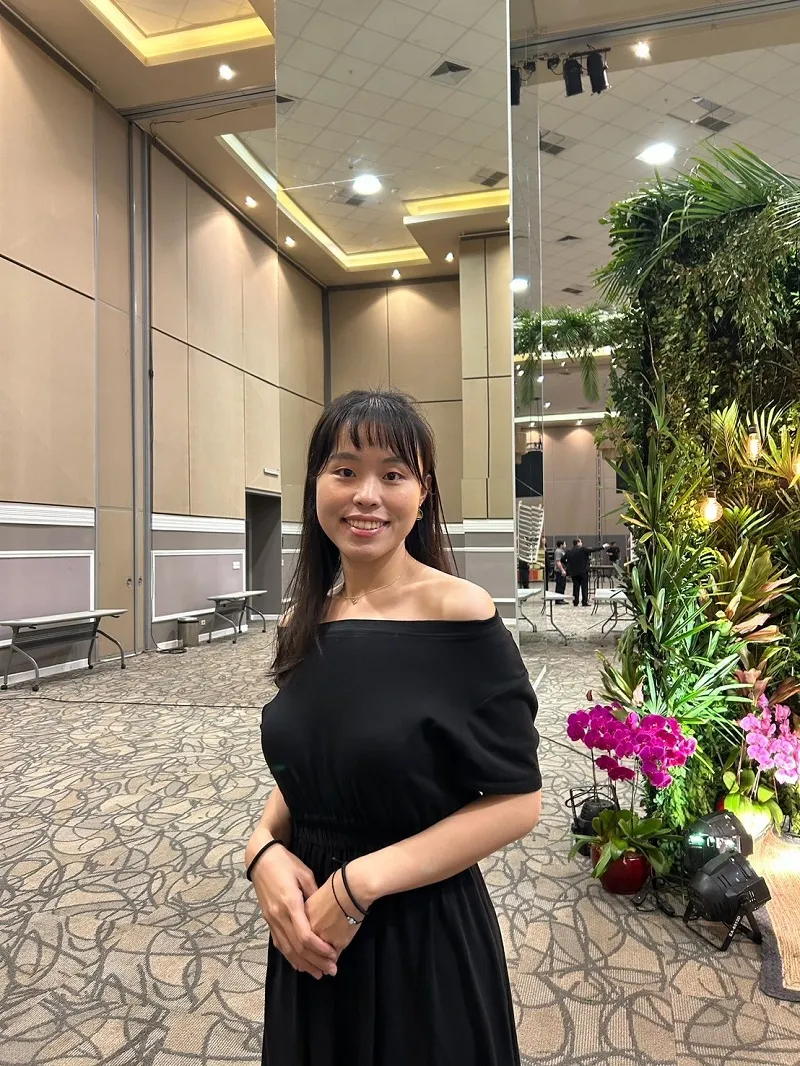
▲One of the highlights for Inmu during her stay in Paraguay was seeing the tangible impact of her work. Photo courtesy of Inmu Chuang Nov 21, 2024
“Watching hospital staff transition from handwritten to digital systems and hearing their positive feedback was incredibly fulfilling,” she shared.
Another unforgettable moment came during a cultural exchange event, where Inmu represented Taiwan at an international expo. The enthusiasm of visitors who stopped by the Taiwanese booth left a lasting impression.
“Many Paraguayans didn’t know much about Taiwan before, but they were eager to learn. It was a proud moment to share our culture and achievements,” she said.
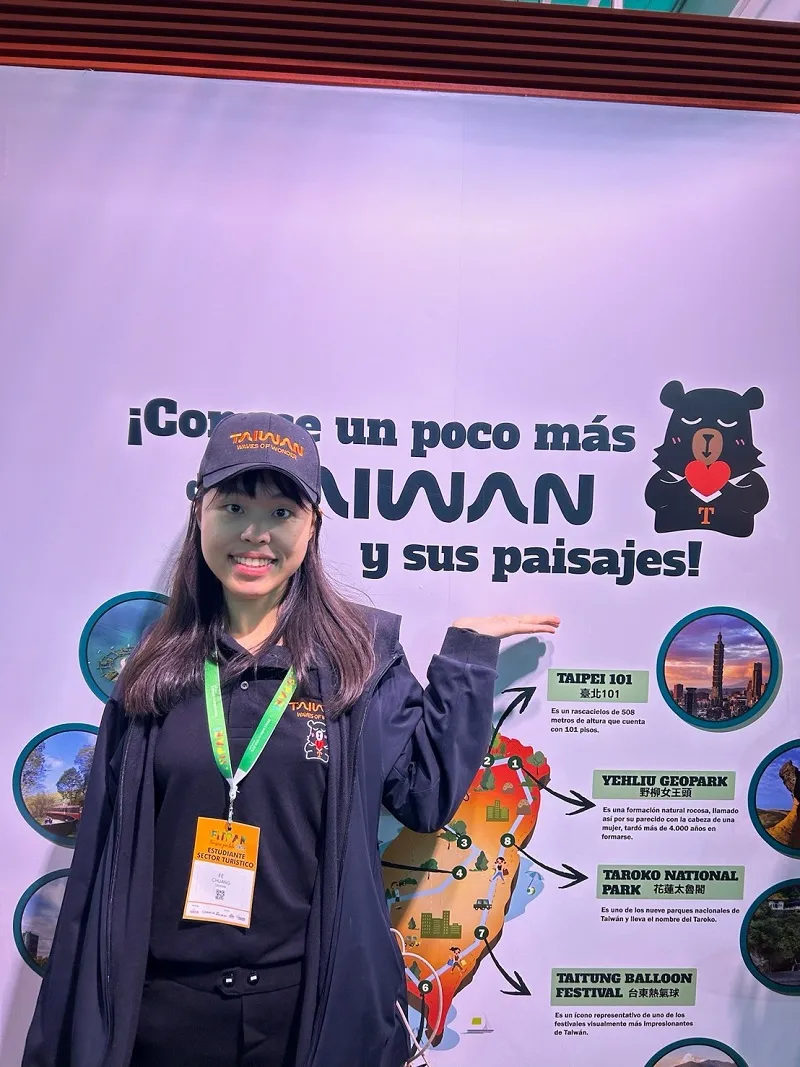
▲One of the most unforgettable moments came during a cultural exchange event, where Inmu represented Taiwan at an international expo. Photo courtesy of Inmu Chuang Nov 21, 2024
Reflections on the Journey
For Inmu, this internship was not just about professional development—it was a journey of personal growth. It fulfilled her childhood dream of exploring South America and strengthened her resolve to make a difference through international cooperation.
“I’ve always been passionate about bridging cultures and contributing to meaningful projects, and this experience reminded me of the power of collaboration and the importance of understanding different perspectives,” she reflected.
In Inmu’s opinion, going abroad for an internship means the necessity of having a heart that can withstand trauma, being brave enough to do what you want to do, not being afraid of failure or stopping, and stepping out of your comfort zone to find the life and work style that best suits you.
Thus, her advice to future GCIT students or anyone considering an international internship is simple: embrace the unknown.
“It’s not always easy, but the challenges are what make the experience worthwhile,” she said. “Step out of your comfort zone—you’ll grow in ways you never imagined.”
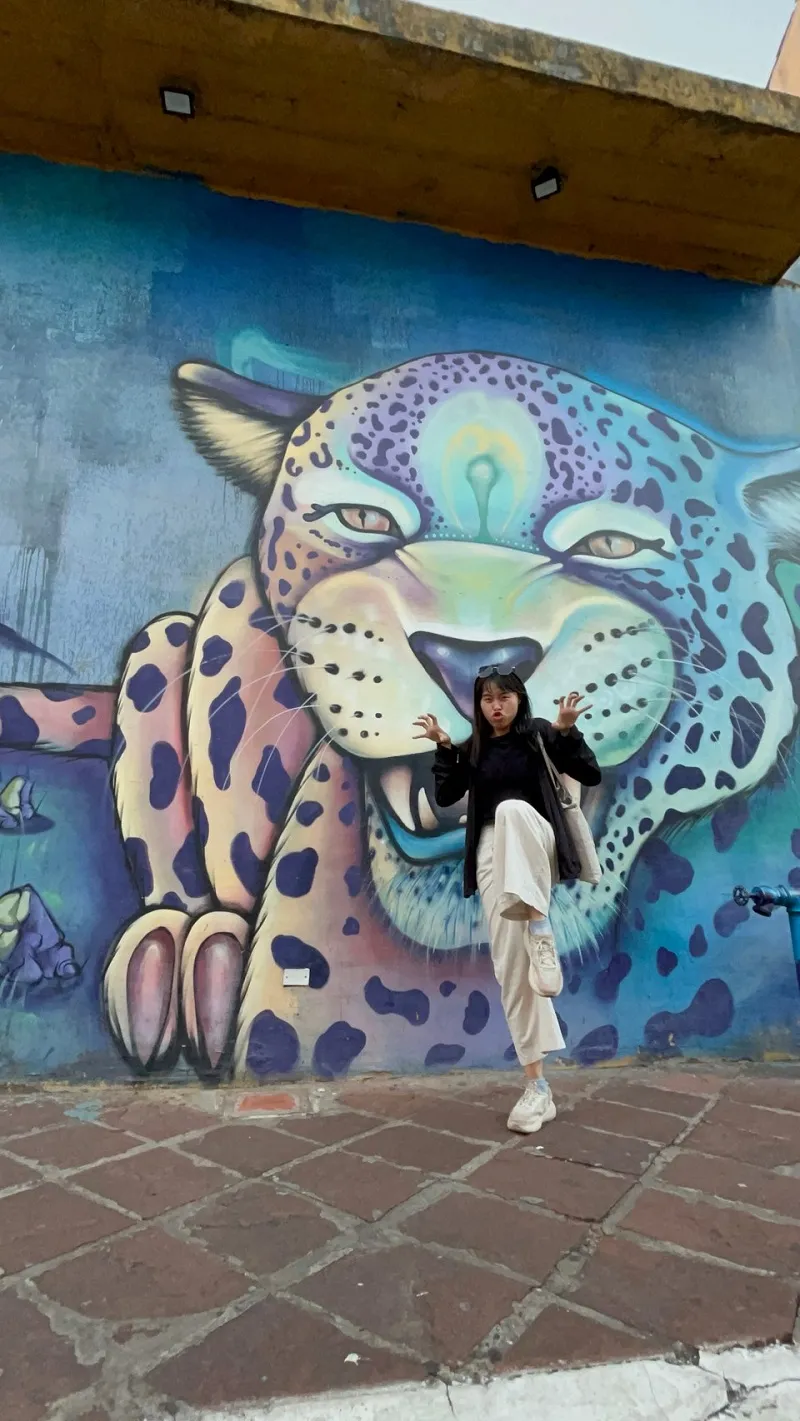
▲Inmu’s advice to future GCIT students or anyone considering an international internship is simple: embrace the unknown. Photo courtesy of Inmu Chuang Nov 21, 2024
Looking Ahead
As Inmu is about to return to Taiwan to complete her master’s program, she carries with her the lessons and memories of her time in Paraguay. Her story exemplifies the transformative power of global experiences and highlights NCCU’s commitment to cultivating globally-minded citizens.
“In many ways, this internship was the perfect culmination of my academic journey and personal aspirations,” she said. “I’m grateful for the chance to represent NCCU and Taiwan on an international stage.”
With her unwavering determination and newfound insights, Inmu’s journey is far from over. Whether in Taiwan or abroad, she’s poised to continue bridging cultures, driving innovation, and making a meaningful impact.